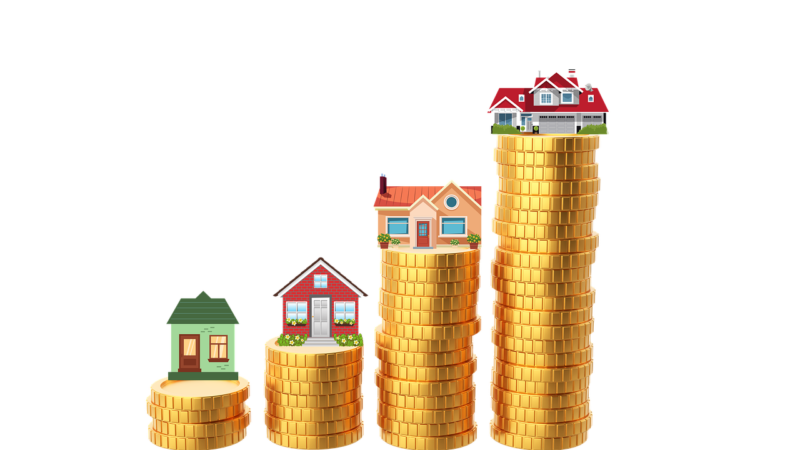House Buying As A Homeowner: Investment Guide
It can seem preposterous as a homeowner to want to buy another house. Who needs more than one house, right? The answer is most people, and more often than not for excellent reasons related to financial investment. However, it’s fair to say that if your relationship to money is limited to trying to get hold of your budget, yup may not have considered the option of growing your income through house buying, especially as the current real estate situation can make it difficult to first-time buyers to find their perfect home.
We’ll explore in depth the many reasons why you might be looking into house financing options, whether you’re looking for a house-flipping alternative or you simply want to upscale your family home. But more importantly, buying a house is a significant investment, regardless of the reason why you buy it – and regardless of how long you intend to own it too. As a consequence, when it comes to defining the most profitable investment strategies for something as personal as residential property, it’s essential to consider both the regulatory requirements and the complexity of human nature – after all, people live in houses, and you can’t fully eliminate their emotional engagement from the equation –, so that you’re best equipped to generate a profit no matter what!
Are you in a situation where you can invest?
The first question that you need to answer for yourself is whether your position is financially safe to make new investments. Indeed, your credit score is a crucial part of your financial portfolio – meaning that if you’ve been late on the repayment of some debts and loans, you can expect your low score to be an obstacle for a further loan application. In short, before you can consider expanding your portfolio, you might want to look closely at your finances first. For instance, if you’ve had to use debt settlement to repay previous credits, this will appear in your credit history. From a lender’s perspective, debt settlement means that you were not able to satisfy the original deal, so this will make things difficult to obtain a loan. Additionally, if you’ve got several credit cards and loans under your belt, lenders will be more likely to reject your mortgage application. However, there is a situation in which you might apply for a bridging finance loan, and it’s when you decide to sell your home to buy another one. This loan is designed to help you through the transitional period between the purchase and the selling of homes.
However, not everyone buys a home to live in it. Here are other investment reasons:
Is it a holiday home?
If you’ve got a favorite spot for your holiday, a place you always go back to, why not buy a holiday home there? Ultimately, you’ll be saving yourself the trouble of looking for an accommodation when you’re traveling. It’s easy to understand the attraction of having somewhere you can escape to. But, a holiday home is also one of the most profitable property investment solutions, as you’ll find that your property can pay for itself through renting activities. From a mortgage perspective, it makes things easier to manage. But you will still need to gather the appropriate deposit to qualify for the mortgage in the first place. However, if you’re savvy, the deposit might be all you need to pay from your pocket for your holiday home until the mortgage expires. Indeed, if the home pays the mortgage, there will be no income tax for as long as the mortgage runs.
Are you becoming a landlord?
If you’re buying a property to let, you need to be very clear about your responsibilities as a landlord. Indeed, as the housing demand is filled by rental units, your investment as a landlord gives you the opportunity to earn income. The income you receive can serve to pay your mortgage back. But you’ll find that the costs inherent to the maintenance of your rental are deductible. However, you have legal obligations related to your renting activities. Failing to comply can cause fines and lawsuits. Additionally, becoming a landlord is a costly business. The cost of your insurance premium can increase by up to 25%. Besides, you may have to face a problematic tenant who could cause a legal dispute – increasing your administrative and legal fees.
Is it a profit-generating property?
If you decide to invest in a commercial property, such as an office building, for instance, you’ll find that most lenders are keen to see a history of financial stability of the property before accepting your loan application. In the real estate market, commercial properties are meeting a high and enthusiastic demand. The need for independent office space for freelancers and self-employed workers and modern business premises is making it a profitable investment. However, to maximize your gains, you need to pay close attention to the location of your property – close to public transports is a good idea, for instance – and your budget. Indeed, while some renovation works might appear expensive at first, you can expect businesses to be keen to pay a little more for a modern and professional interior style.
Are you house-flipping?
House-flipping is the art of buying a house and re-selling it for a profit. It is a risky investment, especially if after renovations, nobody wants to buy the property. Professional house-flippers can make a profit of over $66,000, so it’s enough to lure any newcomer in quitting their job and becoming full-time investors. But in reality, it’s a hobby for someone who’s got enough cash available for short-term investments and an eye for design.
There is no profit
Imagine: A woman offers her daughter and son-in-law to help with the purchase of their home. Several financial and legal elements could play against her. If you buy the house entirely for someone else and lets your name on the deed, there is no profit unless you demand a rental fee. If you help co-financing the house, your name may not appear on the act, aka no profit either.
Hopefully, this can help you to understand better how to make a profit out of house buying when you already have a home.



